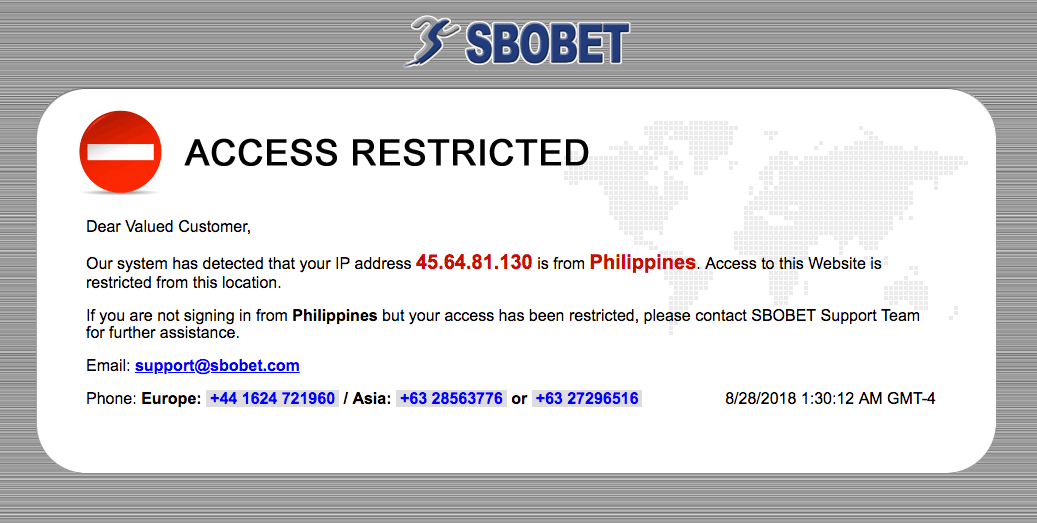SUMMARY
This is AI generated summarization, which may have errors. For context, always refer to the full article.

AT A GLANCE:
- Rehab professionals believe that many Filipinos suffer from online gambling addiction due to easy access in the country, but only a few seek professional help
- Weak internet infrastructure and limited jursidiction hinder Pagcor from enforcing measures to prevent access to other foreign online casinos
- Support from the government, as well as the health sector, is needed to strengthen health services to better address gambling addiction
READ: Gambling addiction: How the Philippines prevents, handles ‘problem gamers’
MANILA, Philippines – It all started with an e-mail from PlayOJO, an online casino game registered in the United Kingdom. “You have three bonus spins!” it read.
Maybe it was the morning sickness, depression, or boredom which made Ann (not her real name)*, housewife and parent, click on the ad. The virtual slot machine was easy money, and her winnings quickly amounted to an equivalent of P100,000 in less than a month. The money, however, went down the drain as easily as she got it.
But Ann went on to sign up for 20 more online casinos. It took a toll on her duties and family relationships. For a time, Ann admitted, she suffered from online gambling addiction.
There are currently no available data on the number of Filipinos addicted to online casino games, due to its mobile nature and the lack of legal jurisdiction in the country. However, psychologists and rehabilitation professionals believe that there are a number of Filipinos suffering silently.
While the Philippine Amusement and Gaming Corporation (Pagcor) prohibits its 55 offshore gaming licensees from offering services and allowing access to Filipinos, unlicensed gambling websites from other countries are just as accessible as other regular websites.
“If Facebook can do it to your phone, it’s the same with gambling. Until you’ve realized [that] you’ve lost something,” Ann said.
Hidden addiction
Pagcor defines gaming as the “participation in gambling events” – not limited to casino games – which involves wagers in predicting gaming outcomes.
It usually only takes a minimum deposit of $20, or $50 for some, to join any online gambling outfit, making it easier to lure users into spending huge amounts without them noticing.
According to psychologist Randy Dellosa, online gambling is a “hidden addiction.”
Hundreds of gaming sites are available on the internet, amplified by advertisements that draw people of all ages to try and gamble.
“When it comes to numbers, it will always be under-reported…It’s online, which means nobody can track them. And then there’s a thin line between gambling online or physically as a leisure activity, as compared to [substance] addiction,” Dellosa said.
Dellosa, also the team leader of Life Change Recovery Center accredited by Pagcor, noted that their rehab center gets in a year only about 10 to 12 clients who have been addicted to online gaming. He believes there are more who are suffering the same.
In Baguio, 60% of Kaya Rehab clients are enrolled specifically for gambling addiction.
“It’s also difficult to see it as an illness from the outside primarily because it’s legal, the ambience where it occurs is that of fun, excitement, socialization – it’s a leisure activity,” Dellosa said.
For Dunn*, a rehab patient who has had a 17-year history of gambling, gambling addiction will only “get worse” with online gaming.
Gamblers rely on the chance of winning little to huge amounts. Most times, losing does not hinder gamblers from playing – rather, it compels them to recover losses until they win again.
Online gaming makes this cycle easier.
“Online gambling is just like having a wallet in your pocket right now and just waiting for the money to come in. Easy. Just pull out your cellphone, and you gamble already right away,” he said.
High rewards, higher risks
Under Pagcor’s Offshore Gaming regulations, Filipino citizens, both here and abroad, are not allowed to play under any offshore gaming company licensed in the country. This is monitored by checking the player’s registration information.
Offshore gaming websites should also be inaccessible within the country, via IP blocking certificates. Back-end sites, however, can still be accessed, with some allowing free trial of their services.

While this may be considered “harmless” as Filipinos cannot continue gaming anyway, it poses a danger to unsuspecting users who end up searching and venturing into more accessible portals.
Moreover, scam online gaming websites continue to float in the internet. Without any legal jurisdiction, money gone from these sites is impossible to retrieve.
Ann, for instance, faced a scam-scare after playing on a Curacao-licensed online casino. The casino declined all cash-out requests and suggested other withdrawal options that obliged her to pay minimum deposits ranging from $5 to $500.
It took a month before the casino finally paid out. The same thing happened with another online casino, 1XBet, whose reviews said the same thing: scam.
Gamblers are also at risk of identity theft.
Online casino operators require proof of personal documents such as valid IDs, passport, and credit card bank statements. Married users may be required to present their spouse’s personal documents as well.
While this may be a necessary step for verification, it gives offshore operators – legal or not – access to personal information that can be used for other purposes unknown to the player.
Tighter local regulations sought
Technically, engaging in online games is legal unless operated by a Philippine-licensed offshore company, a senior offshore gaming official from Pagcor said.

Accessible online gaming sites are beyond Pagcor’s jurisdiction. According to them, they can only report incidents to proper government agencies such as the Office of the President, Philippine National Police, National Bureau of Investigation or the Bureau of Immigration, if foreigners are involved.While Pagcor hopes to prevent the proliferation of online gambling, weak internet infrastructure and limited regulations provide loopholes that allow Filipinos to access online gaming portals.Unlike other countries, the Philippines does not have strict mandates against gambling.
In the US, the Unlawful Internet Gambling Enforcement Act of 2006 prohibits gambling companies from accepting deposits from wagers through the internet. This moved offshore gaming companies to immediately drop US players from gaming transactions.
At the end of the day, the agency cannot fully block all unlicensed gaming websites. The agency gave assurances, however, that they have entered into an agreement with respective agencies to help curb illegal online gaming activities in the country.
A way out: Exclusion, more rehab centers
Online gamblers can seek intervention through options within the games. PlayOJO, for instance, allows problematic players automatic or voluntary self-exclusion, where users are blocked from playing after a period of time.
Other casinos also enforce the responsible gaming option, where a deposit limit is set per session.
Pagcor also encourages players to have themselves checked at accredited rehab centers. However, the Philippines is still far behind in terms of dealing with a gambling addiction.
Kaya Rehab CEO Robert Labos said that treatment for gambling addiction should be different from that of substance addiction, but some medical professionals and institutions tend to mix both due to inadequate resources which, in turn, leads to poor success rates.
Support from the government and health professionals should be prioritized.
“They have to have a good program that will address ’yung gambling addiction. They have to have the right therapist, right counselors, the right people, and then finally, they have to have the facility,” he added. – Rappler.com
Add a comment
How does this make you feel?
There are no comments yet. Add your comment to start the conversation.